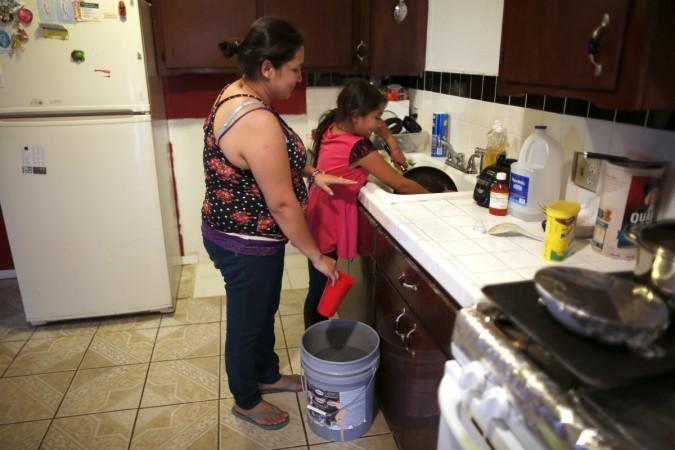
A report, released a day ahead of the World Health Day 2015, has revealed that a million people in California have no access to clean water and are forced to use water polluted with arsenic and other hazardous microorganisms.
The study published in Russia Today noted that the California communities, who are in the midst of a historic drought, have been deprived of clean drinking water. As per the latest guidelines from the California Department of Water Resources, the local communities have been asked to bring down their water use by 25%.
The study found that the rural communities of Eastern Coachella Valley and South Kern spent at least 10% of their income on buying bottled water as the local supplied water was mostly contaminated.
"In some of these areas, people are getting their water from private wells," said Dr Lucia Kaiser, lead author of the study conducted by UC Davis' Centre for Poverty Research. None of those are regulated or are safe for that matter, added Kaiser.
The policy brief, which studied state-regulated and 11 smaller public and private systems in two rural towns in California's Central Vally, found that all of them had violated contaminant levels and contained traces of bacteria, arsenic and disinfection byproducts.
Key Facts from the study
- In agricultural areas, the water systems serving low-income immigrant communities have drinking water contamination levels that are way above federal and international guidelines.
- Alarmed by the lack of safe drinking water, there is an increased negative perception about the safety of tap water, especially among Latino populations, which as a result has led to increased consumption of sugar-sweetened beverages (SSBs).
- Drastic improvements to rural water systems can improve the lives of these under-served populations.
Contaminated water can be acutely dangerous to one's health as it can cause cancer and several thyroid problems.
"Keep in mind..[]these are farming worker families. They are working in the fields in a very hot [weather] with protective clothing. They are sweating a lot. The need to drink water is very real," Kaiser observed in the study.
Conner Everts, facilitator for the Environmental Water Caucus, told RT many people are solely dependent on groundwater.
"They may not have access to ...snowmelt water, which goes right by them and is delivered to 'Corporate Ag' or to Southern California. They are relying on ground water that is not only polluted with chemicals like [arsenic], but nitrates, which are clear and you can't tell" when they are in the water," said Everts.
"We are looking at places that had a historic problem before the drought. There are about 17 communities that are affected."














